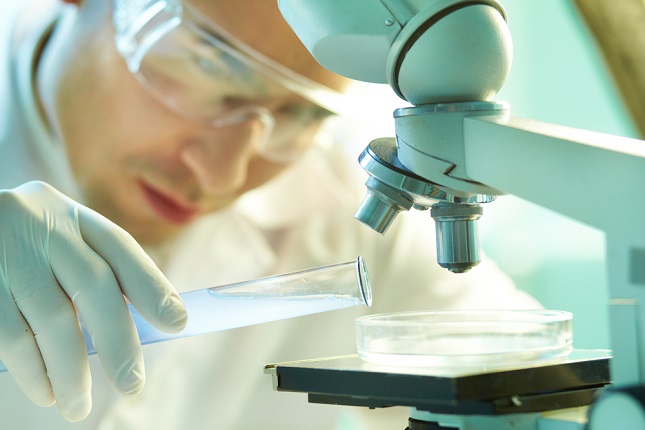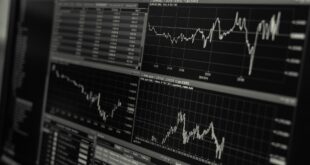
UK, January 8, 2020 (OPEN ACCESS GOVERNMENT)- Dr Nikos Xynos, PhD in Pharmaceutical Sciences/Natural Products Chemistry and MD a Nomad Labs, explores the various pathways to cannabinoid extraction, refining and purification technologies
The use of cannabinoids from Cannabis sativa L. in therapeutics involves various routes and forms of administration such as raw herbal material, cannabis extracts, natural cannabinoid-based medicines and synthetic cannabinoids. Cannabis crude extracts contain more than 500 identified metabolites with more than 100 being the so-called phytocannabinoids. A few of these phytochemicals, mainly Cannabidiol (CBD) and Δ9-Tetrahydrocannabinol (THC) are used especially in epilepsy, cancer palliation and primary treatment, chronic pain, Parkinson disease, metatraumatic stress, multiple sclerosis, anxiety, irritable bowel syndrome, neurodegenerative and other diseases. The processing strategy that should be followed in order to extract, enrich, purify and formulate these substances, must involve multiple extraction steps and technologies.
What parameters should you consider?
A few parameters to consider for defining this strategy is efficiency, cost-effectiveness, required purities, impurities tolerance, available technologies at required scale and more. All that is related to the classification of final products, i.e. medicines, supplements, food, cosmetics, medical devices etc., as well as on drugs legislation. Concentration of active substances (THC, CBD, minor cannabinoids, other compounds) is not the only parameter to respect, as there are also limitations in terms of scheduled -psychoactive- substances (THC, in some countries CBN as well etc.), the concentration limits of which are usually different in various jurisdictions.
Generally, clear regulation and concrete limits in different products is still missing in most of the countries. All the above, as well as the diversity of techniques & technologies render the project of defining the optimal processing strategy, a rather complicated puzzle to solve, where there exist no single ways. The cannabis industry, as it is developing rather fast today, demands reliable answers and the valorization of existing know-how. Thus, there is area of improvement in the R&D through broader osmosis with the botanical extraction Industry and Academia. This way, the roadways of process design will be paved for success and not just with good intentions.
About Nomad Labs
Nomad Labs is an expertise consultancy & technology transfer body focusing on developing customized solutions for botanicals & cannabis processing strategies at R&D and production level. This is summarized in research experience and industrial knowledge on cannabinoid extraction and on sourcing optimum technologies for industrial production. Worldwide, Nomad Labs has partnered with companies and investment groups on the licensing, equipment sourcing and operation of pharmaceutical cannabis and industrial hemp processing plants. The processes are designed to be of maximum efficiencies, while the recommended industrial equipment is mostly of European origin and can meet the strict requirements of the GMP Rules for the food and pharmaceutical industry. Nomad Labs’ know-how and industrial property in the extraction, enrichment and isolation of cannabinoids allows to consult and efficiently execute projects from the earliest stages of facility and process design to the training and Standard Operating Procedures (SOPs) development.
Rousselet Robatel Kromaton (RRK), a historical equipment manufacturer and a strategic Nomad Labs partner, offers an entire line of, mostly stainless-steel made, extraction and refining systems using centrifugal force.
Extraction – The cannabis biomass is mixed with a solvent (ethanol, alkanes etc.) under stirring and mild heating, in order to achieve mass transfer of the secondary metabolites (cannabinoids & other bioactive compounds) in the solvent. The extraction is performed dynamically in a centrifuge with a closed loop allowing enrichment of the solvent, guaranteeing efficiency and reducing the solvent consumption. Other extraction technologies can be envisaged as well, such as maceration, percolation and more.
Separation – Utilizing centrifugal solid-liquid separation technology, RRK’s centrifugal decanters filter biomass from the solvent to recover an extract and reduce disposal costs. After separation and winterization, thermostatic decantation follows to separate the crude cannabinoids from waxes, lipids, water, and other byproducts.
Enrichment – After the initial extraction, the centrifugal liquid-liquid solvent extraction of RRK is applied in order to enrich cannabinoid content by recovering the aqueous phase contain acidic cannabinoids, as well as, the organic solvent phase containing neutral cannabinoids.
Purification – The Kromaton Fast Centrifugal Partition Chromatography (FCPC™) is used to isolate and recover specific cannabis compounds. This process can be customized to collect any variety of compounds including pure fractions of major and minor cannabinoids, terpenes, alkaloids, flavonoids and more. Additionally, purification eliminates contaminants like pesticides and other chemical and biological substances.
Focusing on purification, the most sophisticated step of the process, RRK has developed FCPC™ technology which implies liquid/liquid chromatography. This is a cost-efficient alternative to conventional approaches for the fractionation of complex mixtures and purification of target compounds: APIs, biomolecules, natural products etc. Since 1999 Kromaton is the leader in the development of such systems. They are made-in-France and comply with GMP standards. While chromatography technology is not new to the industry, the FCPC™ operational mode is not the same as in traditional chromatography. The Kromaton systems offer several advantages over column, flash, and HPLC chromatography a few include: 1) No solid packing material like silica or resin, 2) No sample loss from the irreversible adsorption, 3) No denaturation of sensitive compounds, 4) High throughput capacity, 5) Small footprint & easy scalability.
Nomad Labs and RRK successfully developed processes and technologies for separating CBD, THC and other cannabinoids. These solutions allow to accelerate Research & Development and gain significant time and experience, developing efficient and compliant SOPs. These comply with guidelines for the Pharma & Food industry. Thus, RRK & Nomad Labs can be a reliable partner for transferring technology to the Cannabis Industry.
 Investment value finders Investment value finders
Investment value finders Investment value finders



